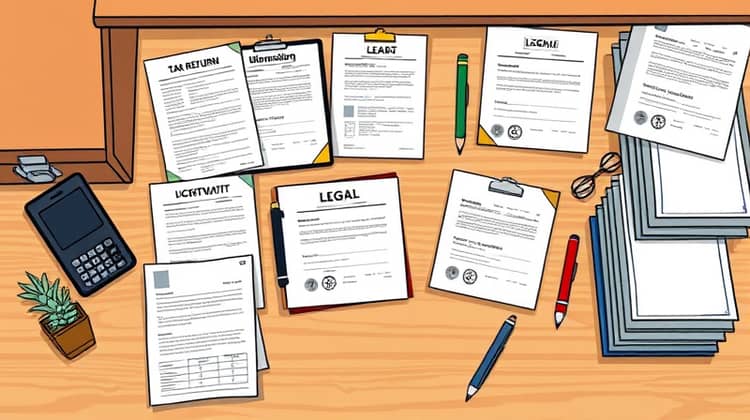Starting a small business is both an exciting and challenging endeavor. One critical aspect to consider when establishing your venture is the potential need for financing, whether to cover operational costs, purchase equipment, or expand your offerings. Navigating the process of applying for a small business loan can seem daunting, but it's essential to take a systematic approach to ensure you're prepared and informed.
This article outlines seven key steps in the loan application process, designed to help you secure funding for your business. By following these steps, you can improve your chances of getting approved for a loan and make the overall process smoother and stress-free. Remember, each business is unique, and understanding your specific needs will play a significant role in determining the best financing option for you.
Let's delve into the essential steps you need to take when applying for a small business loan, and set the foundation for your business's financial success.
1. Assess Your Financing Needs

Before applying for a loan, it's crucial to evaluate your specific financing needs. Determine how much capital you require and what you will use it for. This assessment will not only help you select the appropriate loan products but also give lenders a clear understanding of your funding requirements.
- Identify the purpose of the loan (e.g. inventory, equipment, expansion)
- Calculate the exact amount you need
- Consider the timeline for repayment
By assessing your financing needs properly, you position your business to approach lenders with a clear and compelling request for funding, which enhances your credibility.
2. Research Loan Options

Once you have a clear understanding of your financial needs, it's time to explore different loan options available to small businesses. The financial landscape is filled with various lenders offering diverse products, each tailored to meet specific business needs.
- Traditional banks
- Credit unions
- Online lenders
- SBA loans
Researching various loan options allows you to compare interest rates, terms, and flexibility. This step is essential to ensure you choose the best fit for your business that aligns with your financial situation and goals.
3. Prepare Your Financial Statements

Lenders will require proof of your business's financial health, so it's crucial to prepare thorough and accurate financial statements. Having these documents ready can facilitate a smoother loan application process.
- Income statements
- Balance sheets
- Cash flow statements
Good financial statements not only provide transparency but also showcase your business's performance, making it easier for lenders to gauge your creditworthiness.
4. Develop a Strong Business Plan

A well-structured business plan is vital when applying for a small business loan. It outlines your business goals, strategies, and financial projections, giving lenders insight into your vision and operational capability.
- Executive summary
- Market analysis
- Sales and marketing strategies
- Funding requirements and projections
A strong business plan can significantly impact a lender's decision, as it demonstrates your commitment and readiness to succeed.
5. Check Your Credit Score

Your credit score plays a significant role in the loan approval process. Lenders use this score to determine your risk level and potentially the interest rates they will offer.
- Obtain your credit report from a credit bureau
- Check for errors on your report
- Understand your credit score range
- Take steps to improve your credit if necessary
Being proactive about your credit score can help you secure better financing terms or even increase your chances of loan approval.
6. Gather Required Documentation

In addition to your financial statements and business plan, lenders will require a range of documents to process your loan application. Being prepared with the necessary documentation can speed up the approval process.
- Tax returns (personal and business)
- Business licenses and registrations
- Legal documents (contracts, leases)
- Identification documents
- Bank statements
Having all necessary documents readily available demonstrates professionalism and readiness, which can influence the lender’s perception of your business.
7. Submit Your Loan Application

Finally, with all your preparation in place, you are ready to submit your loan application. This step is crucial, as it represents your request for assistance to fund your business.
- Double-check your application for complete accuracy
- Submit your application through the chosen lender's method (online, in-person)
- Be prepared for a follow-up interview or questions from the lender
Submitting your loan application is just the beginning; be patient and remain responsive during this period. Keep communication lines open, as lenders may require additional information to finalize their decision. It's important to stay engaged and demonstrate your commitment to the process.
Conclusion

Applying for a small business loan is a multifaceted process that requires careful consideration and preparation. It's essential to assess your financing needs, explore loan options, and present a compelling application to improve your chances of success. Each of the steps outlined contributes to creating a comprehensive strategy that not only helps you secure needed funds but also prepares your business for future growth.
As you embark on this journey toward obtaining financing, remember that preparation is key. Thoroughly understanding your business's financial situation paired with clear documentation and a robust business plan can distinguish your application from others. Having a clear narrative about your business and its potential will resonate with lenders and increase your credibility.
In summary, by following these seven steps systematically, you’ll be in a strong position to apply for a small business loan, leading to better outcomes for your business's financial future.














